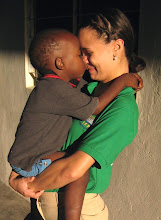During one episode of my De Anza college automotive technology class, the instructor passed around, for the sake of demonstration, a piece of an engine. A “piece of an engine” is still the best I can identify the object as. When the piece was passed to me, I touched something I should not have touched, for when it made it back to the instructor, it was broken. Well not broken, exactly, but stuck. The instructor, who had no qualms at all, systematically went through the rows of students asking who had done it until a gentleman in the row ahead of mine falsely admitted to it. The class however, did not doubt the abilities of this aspiring mechanic. They may have wondered, rather, what this 18-year old woman with a horrified look on her face was doing in a night class for people whose profession would be fixing cars.
When I inevitably failed the class with a “No Pass,” I went to the instructor and asked if he could change it to a “Withdrawl.”
He didn’t grant my request, but he gave me some advice. “You know,” he told me, “sometimes you just have to learn when to quit.”
While I do not disagree with this advice, I do not often follow it. I don’t usually quit. And I also almost never repeat. Sometimes this means suffering through something to the end and then forever turning my back on it. Or sometimes it means enjoying something through the end and then decisively moving on from it. I never repeated the same activities during any of the summers of my five-year college career. No one who ever sent brochures to recruit me back for a second year of camp counseling or program assisting succeeded.
In the end, I feel that this means that nothing but a disaster could make me leave Peace Corps early, and Mozambique certainly doesn’t seem like a country prone to disaster. Yet as the end of my contract nears, I will become restless and not at all interested in the suggestion of a colleague that he could help me find a paid position teaching here a third year. “Why would I do again what I have already done?” I would reason, and would therefore also never apply to Berkeley for a graduate program after having done undergrad there. I am not excited about moving back to San Jose, after having grown up there. Nor do I feel right trying to reinsert myself into the same group of friends after having left them. The preservation of individual relationships, of course, is different.
I am very torn, however, between resisting stagnancy (coming to land in a comfortable place and being afraid to ever move out if it) and avoiding rootlessness (never being content or fully satisfied by anything, not buying into it, investing in it, and letting it become part of your identity and sense of place.) In one moment I criticized the boringness of people who thought they would never move on and in the next envied them for the amount of happiness they must be experiencing to arrive at that kind of certainty.
“If there is one thing I’ve learned from flying across the Atlantic,” I wrote to a friend in a letter, “it’s that I want roots.” And what I want about roots is the absolutely most mundane things, like knowing how to take public transportation around the city and where to find everything in the grocery store, having a friend to spend the night with when it’s too far to make it back home and knowing you won’t ever celebrate your birthday alone. And what I want about the ability to fly is simply the capacity to not be forced to disappointment by reliving something that’s not as good as the first time, nor being stuck in something that wasn’t even good the first time.
My Italian neighbors have given me the idea to teach English in Italy. My friend Sara thinks I should move close to her in Sacramento. I’ve talked with my friend Jen about living with her in Cambridge. The only “rooty” thing I have considered is moving close to my parents to help my mother take car of my immobile grandparents. “Maybe I could help you drive Grandpa to the hospital,” I told her. But on second thought I considered the time to dedicate my life to supporting my family will be when I must take care of my own ailing parents, not when I’m 23. Only such a heroic thing could attract me to home and even that likely will not. I may go back to community college to take math or business courses, but not definitely not my first community college, simply because it was my first my community college. I adore my successful friends but fear being the least accomplished of all of them. I am motivated to the new and the different out fear as much as curiosity.
Sunday, February 21, 2010
Subscribe to:
Post Comments (Atom)

No comments:
Post a Comment